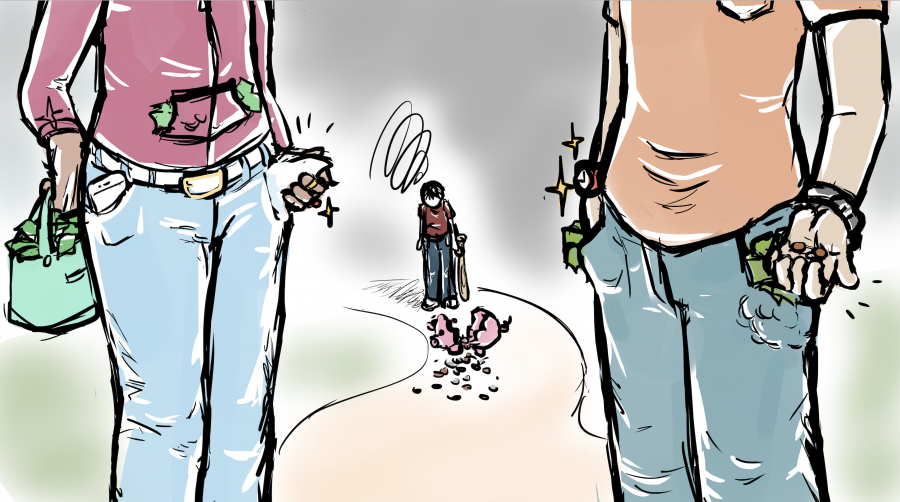Q: As a financially independent college student who often struggles with income, what would you say to the pseudo-broke college students who aestheticize the narrative?
Yanett Heredia, senior neuroscience major
A: “I would tell them to tell their parents to cut them off for a month, and to go get a job that will pay their rent. Not just working at some retail store, but try to and find a job that will make you enough money that will pay your rent, your bills, your food, your gas money. Just try it out for month and see what it’s like to be a financially independent college student and actually be kind of broke, and then go back to your normal life and see if you actually want to use it as an aesthetic or chic image.”
College is expensive. VERY expensive.
The stereotype of being a broke college student is plagued with expectations of eating ramen, being frugal bargainers and being avid penny-pinchers. While this might be true for some, many people who are not low-income students or “broke” love to co-opt the experiences of “broke” college students because for some odd reason, it’s seen as an aesthetic that one can embody to seem more independent.
But this is not a costume you can put on and take off. Many low-income college students who might be considered “broke” are self-supporting and may have a level of independence beyond that of someone who’s financially supported by their parents. By saying they’re “broke,” college students try to come off as financially independent without having to actually work for it.
However, median family income of a student from UT is $123,900, and 56 percent come from the top 20 percent. If you’re not actually broke and come from a high-income family, don’t complain about how you’re “a broke college student” for the aesthetic. This can be very reductive to the experiences of low-income college students and is flat-out disrespectful.
As a low-income student myself, being broke is not something that I strive for, or proclaim from the top of a building. It can often be embarrassing, and a hassle to keep up with the economically driven environment that is a college institution.
Heredia has financially supported herself for her entire college career and says the broke college student narrative is more than just the stereotype.
“It is very disrespectful when I hear someone aestheticizing the broke college student narrative because they don’t know what it actually is like and they don’t know the struggle that comes behind it,” Heredia said. “I’m independent and I fully support myself, and maybe that’s what they’re trying to feel like, but they totally disregard all of the other stuff that comes with it, like having to work 30-plus hours a week, having to sacrifice study time for work and, if you’re short on rent, having to give up sleep and study time to go make the last $100 that you need to pay off your rent at the end of the month.”
It’s a literal struggle out here for low-income students. So please, if you do not know what it’s like to be actually broke and deal with the anxieties of being low-income, then do not say you are broke when you have plenty of money to fall back on. Recognize the privilege of having a higher socioeconomic status and do not feel like you have to lie to fit the typical college student narrative.
Point. Blank. Period.
Devora is a journalism senior from Mesquite. Follow him on Twitter @kahrlosh





















